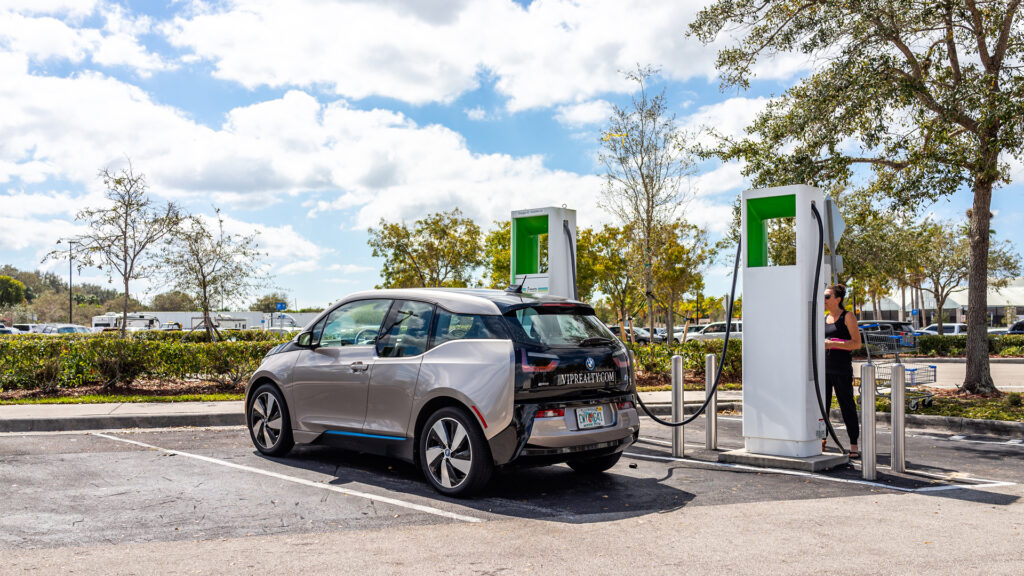By Ali DySard, Environmental Defense Fund
Florida is at a pivotal moment.
Our state now has over 400,000 registered electric vehicles (EVs), the second-highest in the country, and consumer demand for clean transportation continues to grow, driving a critical need for charging infrastructure, especially in rural areas and evacuation zones. Unfortunately, proposed efficiency audits threaten to stall progress, discarding millions in federal grant funds while pushing rural communities further behind and exposing them to continued soaring gasoline prices.
Over the last six years, Gov. Ron DeSantis and the Republican Legislature have focused on striking a balance to make sure Florida is ready to embrace the future while ensuring fiscal conservancy. The Florida Department of Transportation’s (FDOT) recent study cited that for every dollar invested in transportation, the state generates a return of $4.40.

Recognizing that EV adoption continues to accelerate with 1 in 10 new vehicles sold in Florida in Q4 2024 being electric, FDOT created the state’s Electric Vehicle Infrastructure Deployment Plan in 2021. However, despite ranking second in the nation for registered EVs, Florida’s charging infrastructure isn’t keeping pace, with rural regions lagging the most and critical gaps in coverage still remaining.
Last year, Florida spent time and money deploying temporary mobile EV charging stations along Interstate 75 and Interstate 4 during Hurricane Milton to meet the demands of residents along evacuation corridors and in rural areas. After both Hurricane Milton and Helene, Florida’s EV stationary charging stations were up and running swiftly, while gas stations struggled for weeks with long lines and inadequate fuel supplies.
Investing in permanent EV charging infrastructure along evacuation routes and in rural areas would cut costs, improve efficiency and increase resilience — helping Floridians before, during and after disasters.
Rural communities from Immokalee to the Panhandle continue to wait as new and unnecessary bureaucratic barriers slow funding distribution and create uncertainty. With rural drivers spending 30% more on transportation annually than urban drivers and with limited public transit options, reliable EV infrastructure will be crucial to reducing costs and meeting their community’s needs.

Creating new barriers and task forces isn’t just red tape — it prevents rural Floridians from saving over $10,500 on the lifetime of their EV purchase, savings they’ll miss without access to charging stations.
Investing now in future-ready infrastructure is not only efficient, it’s essential to keep Florida ahead of the curve. Our state’s leaders have long championed cost-effective, market-driven solutions that reduce government waste while delivering real savings to everyday Floridians.
The transition to electric vehicles presents an opportunity to uphold those values — reducing transportation costs, increasing fuel independence and making rural communities more resilient — regardless of your ZIP code. By funding mobility solutions today, we ensure Florida is prepared for tomorrow’s transportation needs, reducing long-term costs and positioning the state as a leader in sustainable innovation.
Ali DySard is a senior policy and program specialist with the Environmental Defense Fund.
Sign up for The Invading Sea newsletter by visiting here. To support The Invading Sea, click here to make a donation. If you are interested in submitting an opinion piece to The Invading Sea, email Editor Nathan Crabbe at ncrabbe@fau.edu.



